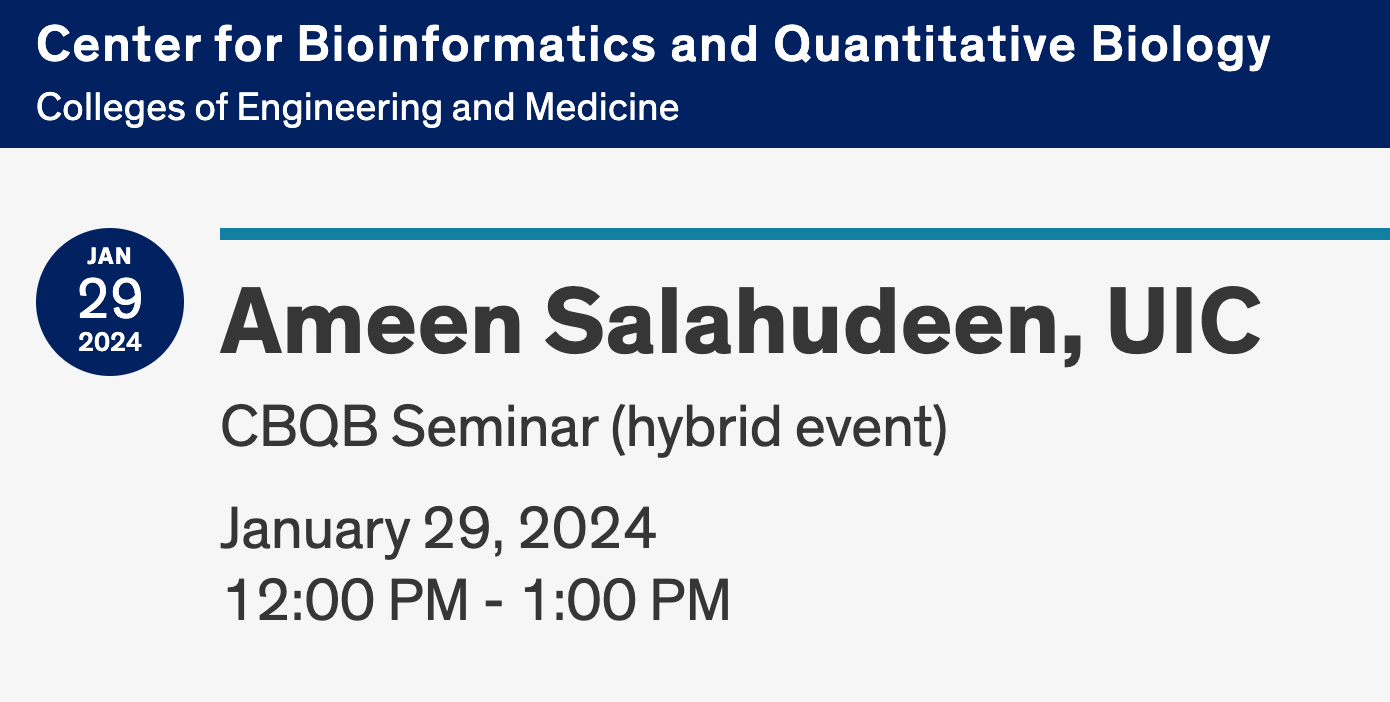
Center for Bioinformatics and Quantitative Biology Seminar with Ameen Salahudeen
Intercepting cancer via AI-enabled therapeutic target discovery and clinical diagnostics
Ameen Salahudeen, MD, PhD
Clinical Assistant Professor, Department of Internal Medicine
University of Illinois College of Medicine
Translational Oncology Program Member
University of Illinois Cancer Center
This is an in-person event held in room COMRB 8175. The seminar will also be live-streamed.
Abstract:
The inflammatory environment is increasingly acknowledged as fueling the development of several cancers including those in lung and head and neck cancers. In lung cancer, smoking is a known causative risk factor and smoking cessation dramatically reduces the risk of incidence and mortality. However, risk reduction is tied to the degree of baseline tobacco usage and reduction in lung cancer mortality improves upon smoking cessation milestones at 5, 10, and 15 years. This clinical observation is compatible with a mechanism of reversible lung parenchymal changes and not one of indelible mutations in lung progenitor cells. Further, in the CANTOS study, a randomized placebo-controlled trial of several thousand cardiology patients found that treatment with anti IL-1ß monoclonal antibody canakinumab reduced lung cancer mortality by up to five-fold. Finally, Swanton and colleagues published recently in Nature a mechanism of IL-1ß driving tumor progression via air pollution in NSCLC. These findings suggest inflammatory microenvironments promote cancer and that IL-1ß or similar agents may intercept/prevent lung and other cancers by neutralizing this microenvironment.
To test this hypothesis, the laboratory has adopted a two-pronged approach leveraging deep learning in 1) clinical imaging and diagnostics and 2) spatial biology profiling of early tumors and premalignant lesions in laboratory models and patient samples of lung and head and neck cancer at baseline and upon exposure to novel therapeutics. Findings from these studies hold the potential to improve cancer outcomes through improved early detection, risk stratification, and therapeutic response.
